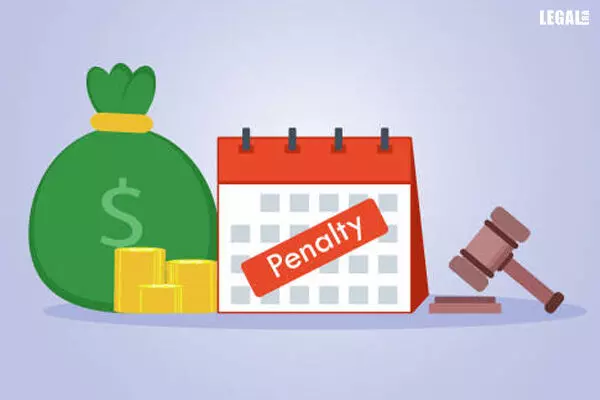- Home
- News
- Articles+
- Aerospace
- Agriculture
- Alternate Dispute Resolution
- Banking and Finance
- Bankruptcy
- Book Review
- Bribery & Corruption
- Commercial Litigation
- Competition Law
- Conference Reports
- Consumer Products
- Contract
- Corporate Governance
- Corporate Law
- Covid-19
- Cryptocurrency
- Cybersecurity
- Data Protection
- Defence
- Digital Economy
- E-commerce
- Employment Law
- Energy and Natural Resources
- Entertainment and Sports Law
- Environmental Law
- FDI
- Food and Beverage
- Health Care
- IBC Diaries
- Insurance Law
- Intellectual Property
- International Law
- Know the Law
- Labour Laws
- Litigation
- Litigation Funding
- Manufacturing
- Mergers & Acquisitions
- NFTs
- Privacy
- Private Equity
- Project Finance
- Real Estate
- Risk and Compliance
- Technology Media and Telecom
- Tributes
- Zoom In
- Take On Board
- In Focus
- Law & Policy and Regulation
- IP & Tech Era
- Viewpoint
- Arbitration & Mediation
- Tax
- Student Corner
- AI
- ESG
- Gaming
- Inclusion & Diversity
- Law Firms
- In-House
- Rankings
- E-Magazine
- Legal Era TV
- Events
- News
- Articles
- Aerospace
- Agriculture
- Alternate Dispute Resolution
- Banking and Finance
- Bankruptcy
- Book Review
- Bribery & Corruption
- Commercial Litigation
- Competition Law
- Conference Reports
- Consumer Products
- Contract
- Corporate Governance
- Corporate Law
- Covid-19
- Cryptocurrency
- Cybersecurity
- Data Protection
- Defence
- Digital Economy
- E-commerce
- Employment Law
- Energy and Natural Resources
- Entertainment and Sports Law
- Environmental Law
- FDI
- Food and Beverage
- Health Care
- IBC Diaries
- Insurance Law
- Intellectual Property
- International Law
- Know the Law
- Labour Laws
- Litigation
- Litigation Funding
- Manufacturing
- Mergers & Acquisitions
- NFTs
- Privacy
- Private Equity
- Project Finance
- Real Estate
- Risk and Compliance
- Technology Media and Telecom
- Tributes
- Zoom In
- Take On Board
- In Focus
- Law & Policy and Regulation
- IP & Tech Era
- Viewpoint
- Arbitration & Mediation
- Tax
- Student Corner
- AI
- ESG
- Gaming
- Inclusion & Diversity
- Law Firms
- In-House
- Rankings
- E-Magazine
- Legal Era TV
- Events
CESTAT rules out penalty in absence of misstatement and suppression of facts

CESTAT rules out penalty in absence of misstatement and suppression of facts
The Customs department had held that the goods were liable for confiscation and imposed a fine on the exporters
The Hyderabad bench of the Customs, Excise and Service Tax Appellate Tribunal (CESTAT) has held that imposing penalty under the Income Tax Act, 1961 is not permissible in the absence of collusion, wilful misstatement, suppression of facts, or even any duty liability.
The appellants Bagadiya Brothers Pvt Ltd and Anand Kumar Agrawal had challenged the January 2012 Order-in-Original passed by the Commissioner of Customs, Visakhapatnam.
The appellants exported iron ore fines, which were subject to export duty at Rs.300 per MT. In case the Fe content of the iron ore fines was below 62 percent, the appellants were exempted from the export duty of more than Rs.50 per MT as per the May 2007 Notification No. 62/2007-Cus.
In May 2008, they filed a shipping bill claiming the Fe content to be less than 62 percent. Along with the bill, the exporters enclosed a test report from a private testing laboratory, which indicated the Fe content as 61.03 percent.
The assessing officer (AO) assessed the bill provisionally. It was subject to the execution of a test bond. The conditions were that the exporters would abide by the test report of the Central Revenue Control Laboratories (CRCL). If the Fe content was found to be above 62 percent, they would pay the differential export duty.
On receiving the test report, the AO cancelled the test bond executed by the exporters. Based on the intelligence collected and investigation conducted by the Directorate of Revenue Intelligence, Commissioner of Customs, re-assessing the export duty and recovering the differential duty at Rs.250 per MT, under the Customs Act, was proposed.
The department held that the exported goods were liable for confiscation under the Customs Act and imposed penalties on the exporters.
The Coram of Anil Choudhary (judicial member) and P Venkata Subba Rao (technical member) observed that the Customs Act provided imposing a penalty for short levy or non-levy of duty only in case of collusion or any wilful misstatement or suppression of facts by the person liable to pay the duty or interest.
However, the tribunal did not find any collusion or wilful misstatement or suppression of facts or even any duty liability on the part of the exporters.
The bench observed that the entire demand was made by applying the test reports, which were on a dry MT basis instead of reports on a wet MT basis. This violated the law and was contrary to the directions of the Board in the February 2012 Circular No. 04/2012.
Thus, CESTAT set aside the impugned order and allowed the appeal.



